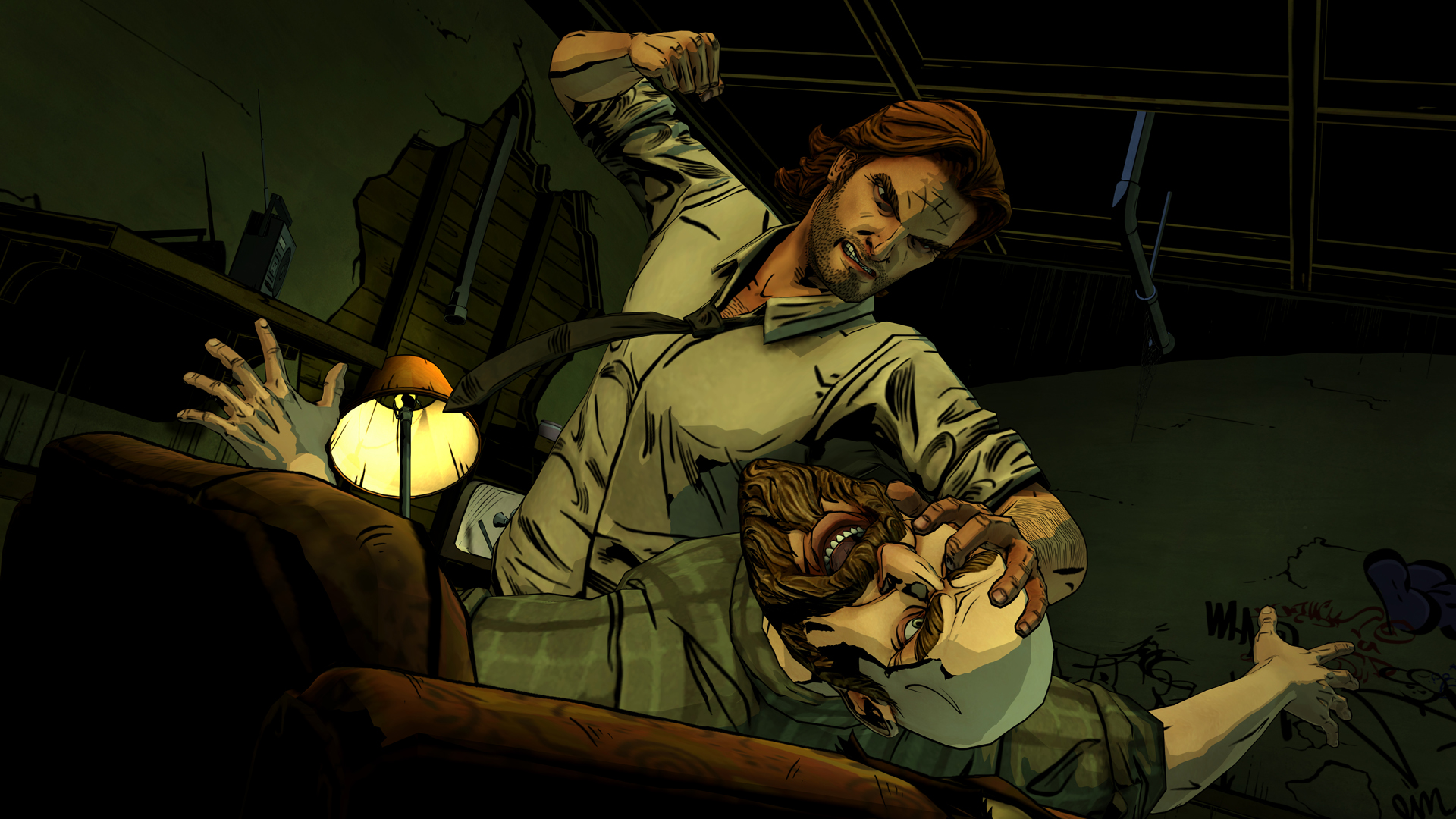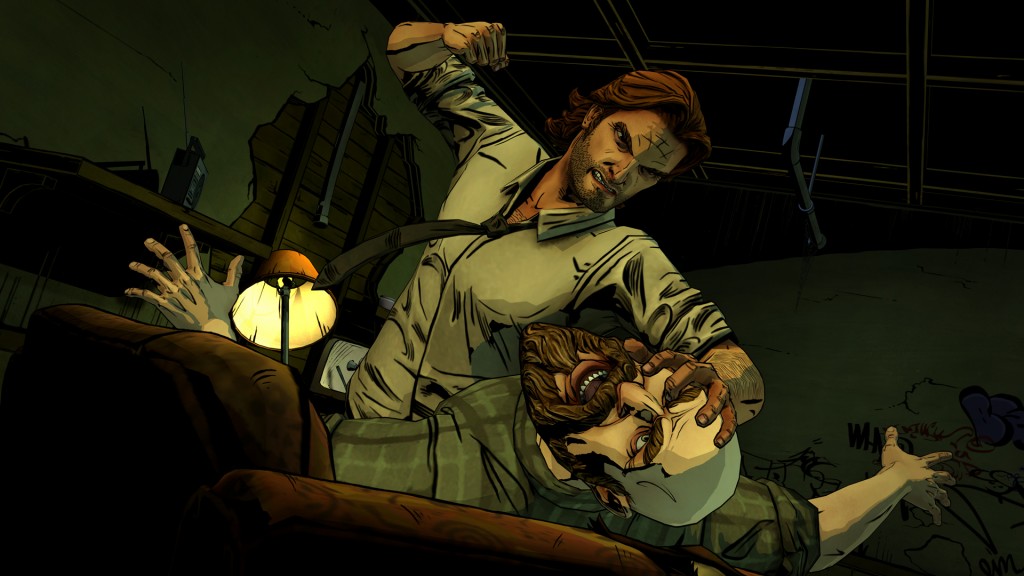By Jeremy Hannaford (Contributor) – Email
Print Edition: February 26, 2014
Telltale Games has definitely bitten off more than it can chew.
In the closing months of 2013, the studio announced several upcoming projects. Along with another season of The Walking Dead already in motion, it will be developing games based on HBO’s Game of Thrones and Gearbox’s Borderlands. Both shocking announcements were met with much excitement. However, that excitement began to wear off when the second episode of The Wolf Among Us missed its October 2013 release date. It took three months of waiting, but Episode Two: Smoke & Mirrors is finally out. Despite the delay, it still feels like a rushed product.
Smoke & Mirrors is riddled with glitches, frame-rate issues, and ridiculous loading times, all plaguing gameplay.
Some other issues are the surprisingly short episode length, leaving the feeling that it was cut back in terms of content. From the preview after episode one, it seemed like there would be a lot more to come.
One choice I really felt was underwhelming was the return to the Trip Trap Bar. In the previous chapter, I decided to sever Grendel’s arm during my fight with him. But after viewing other videos of people who did the opposite to Grendel, I realized the scene is nearly identical. While there is a mention of whether you removed his arm or not, the outcome is exactly the same, which defeats the purpose of committing the gruesome act.
Maybe that goes deeper than necessary for a single decision, but that feeling is present throughout the story. The choices are straightforward and pointless.
I loved the first episode of The Wolf Among Us. I am enthralled with the universe it is based in. I even started to read Bill Willingham’s comic series, which the game is based on, and I am interested to see how the game concludes. But I firmly believe Telltale Games needs to take a step back to see what it has really gotten itself into. The studio has always been somewhat consistent with games that have been passable at best until The Walking Dead. But with that game, it set a new bar. Telltale has shifted from small projects to several massive ones. The studio needs to refocus, or its products will continue to diminish in quality.



